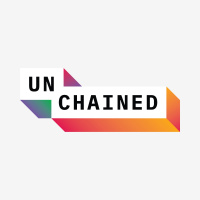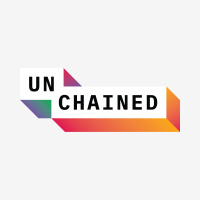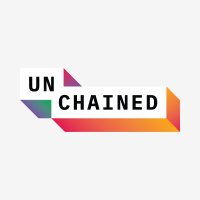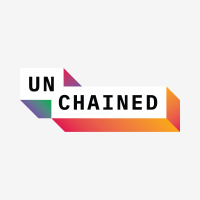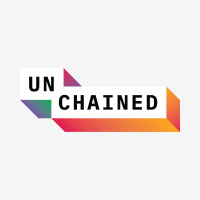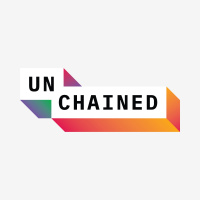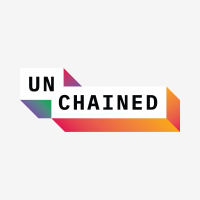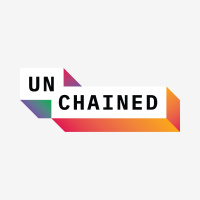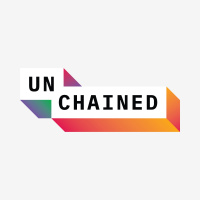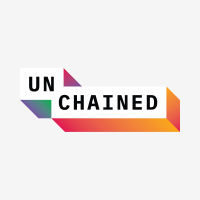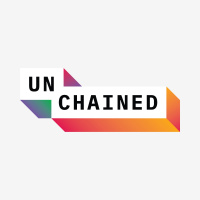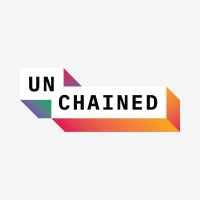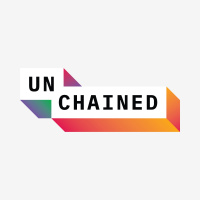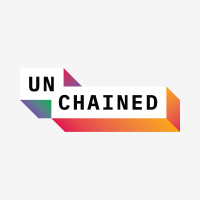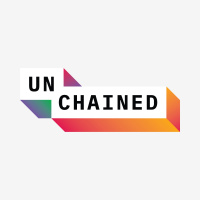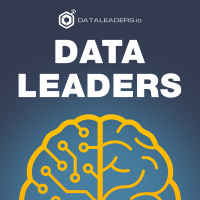Sinopsis
Crypto assets and blockchain technology are about to transform every trust-based interaction of our lives, from financial services to identity to the Internet of Things. In this podcast, host Laura Shin, senior editor at Forbes, talks with industry pioneers about how crypto assets and blockchains will change the way we earn, spend and invest our money. Tune in to find out how Web 3.0, the decentralized web, will revolutionize our world.
Episodios
-
Jimmy Song on Why Bitcoin Will Be the Winning Cryptocurrency - Ep.69
26/06/2018 Duración: 01h08minIn an episode of strong positions, Blockchain Capital partner and Bitcoin educator Jimmy Song explains why private blockchains will never work, why smart contracts will never work, and why Bitcoin will be the one and only valuable cryptocurrency. He also gives his definition sound money, describes why Bitcoin is sound money, and talks about how he finds new companies to invest in if he believes Bitcoin is already the winner. Plus, he recounts the story of his buzz-generating debate with ConsenSys's Joe Lubin at the Consensus conference, which ended with a challenge to come up with a bet in Bitcoin, and what terms Jimmy would like to make the bet on. Lubin, it's your move. Jimmy Song on Twitter: https://twitter.com/jimmysong Medium: https://medium.com/@jimmysong Blockchain Capital: http://blockchain.capital/ Programming Blockchain: http://programmingblockchain.com Off Chain with Jimmy Song on Youtube: https://www.youtube.com/channel/UCEFJVYNiPp8xeIUyfaPCPQw Medium post on smart contracts: https://medi
-
Live From the World Economic Forum Industry Strategy Meeting: Breaking the Blockchain Hype - Ep.68
20/06/2018 Duración: 01h03minThis is a live recording from a panel I moderated at the World Economic Forum Industry Strategy Meeting. The speakers included Shwetha Shetty Senior Director, Corporate Strategy Group, of SAP, Adam Ludwin, CEO of Chain, Brian Behlendorf, executive director of HyperLedger the Linux Foundation and Sheila Warren, project head of blockchain and distributed ledger technology at the World Economic Forum.We dive into the pros and cons of using blockchains for elections. which types of problems are best-suited to be solved by blockchain, why B2B applications of blockchain might come before B2C products and what kinds of identity-related data might be safe to put on a blockchain. Plus, Adam reveals some entertaining anecdotes about Silicon Valley safaris and how old World’s Fair tickets could have an analog to blockchain systems today. Episodes I referenced during the discussion in case listeners want to dive more into the elections topic: Tomicah Tillemann episode on the blockchain voting pilot in West Virginia: h
-
Why ASICs May Be Better Than GPUs Even if They Tend Toward Mining Centralization - Ep.67
19/06/2018 Duración: 01h03minDavid Vorick, CEO of Nebulous, which operates Siacoin and a new subsidiary, Obelisk, describes what he's discovered in his exploration of the mining industry, including why he's decided that specialized chips like ASICs are preferable to generalized chips like GPUs, even if they tend to bring out mining centralization. He also describes Obelisk's new service, Launchpad,which secures exclusive deals to create a custom proof-of-work algorithm for a coin and also the mining equipment for it, in exchange for being the only miner on the market at launch or for a period. He explains why he thinks proof of work is the only really viable type of consensus algorithm and doesn't even see any other potentially workable ones on the horizon. Plus, he has some sharp criticisms of Bitmain and claims that several groups were secretly mining Monero, though he can't reveal how he knows. David Vorick: https://twitter.com/DavidVorick https://medium.com/@davidvorick Siacoin: http://sia.tech Blog.sia.tech Obelisk: https://o
-
Live From Consensus: What the Media Really Thinks About Crypto - Ep.66
13/06/2018 Duración: 01h03minThis is a recording of a panel discussion I participated in with a couple other reporters and crypto PR people at Consensus. (It was at the same time as Jack's talk, so it's totally understandable if you missed it. Also, the room was freezing. I was shivering the entire time.) The other panelists were Leigh Cuen of CoinDesk, Avi Salzman of Barron's (and my old classmate from grad school!), Jill Richmond of Spark PR, Trey Ditto of Ditto PR, and the discussion was moderated by Frank Chaparro of Business Insider. We discussed whether or not crypto projects and publications should engage in pay to play (I would have hoped the answer to this would obvious to everyone, but alas), coverage that could cause investors to lose money, whether or not the business model of the media industry drives clickbait headlines and why journalists have a responsibility to include more of the nuances in crypto. We also dish up some practical tips and insider info, like how crypto projects can get media coverage, what factors reporte
-
Placeholder's Joel Monegro on the Fat Protocols Thesis Today - Ep.65
12/06/2018 Duración: 01h01minJoel Monegro, partner at crypto VC firm Placeholder Ventures, describes how well his seminal blog post, "Fat Protocols," is holding up, why he and his partner Chris Burniske opted to found a crypto VC firm as opposed to a hedge fund, and what main factors they think will determine the success of a blockchain. He also describes how crypto and blockchains fit into the evolution of technology, how the business models in the crypto space will be built, and why their first publicly known investment was in Decred. Plus, he reveals why their firm is called Placeholder. Placeholder: https://www.placeholder.vc Joel: https://twitter.com/jmonegro The Placeholder investment thesis: https://ipfs.io/ipfs/QmZL4eT1gxnE168Pmw3KyejW6fUfMNzMgeKMgcWJUfYGRj/Placeholder%20Thesis%20Summary.pdf The Fat Protocols Thesis: https://www.usv.com/blog/fat-protocols Decred investment thesis: https://www.placeholder.vc/blog/2018/5/12/decred-investment-thesis Blog post on information technology cycles: https://monegro.org/work/2018/
-
From the Oslo Freedom Forum: Blockchain vs. the Surveillance State - Ep.64
06/06/2018 Duración: 01h28minThis recording is of Blockchain vs. the Surveillance State, a series of talks and a panel from the Oslo Freedom Forum put on by the Human Rights Foundation. In this session, hear presentations from Ryan Shea of decentralized technology platform Blockstack; Galia Benartzi of smart token platform Bancor; Steve Waterhouse of surveillance-free internet project Orchid; and Arthur Breitman from smart contract platform Tezos. Afterward, I moderate a panel among the four speakers that touches on the ways in which blockchains can be used to curb human rights abuses -- but also how bad actors can also use them for nefarious purposes. Oslo Freedom Forum: https://oslofreedomforum.com Human Rights Foundation: https://www.hrf.org The four presentations: Ryan Shea https://twitter.com/ryaneshea of Blockstack: https://blockstack.org (Also check out his interview with cofounder Muneeb Ali on Unchained: http://unchainedpodcast.co/blockstack-on-getting-independence-from-google-facebook-and-amazon) Galia Benartzi https://t
-
Arthur Hayes of Bitmex on Why Countries Will Turn to Digital Cash - Ep.63
05/06/2018 Duración: 01h02minArthur Hayes, CEO of Bitmex, describes how traders on his platform can make great gains but experience limited losses, how Asia's crypto markets differ from those in the U.S., and why he makes money whether or not crypto prices go up or down. He also describes why ICOs are crap now but why he fully supports the idea in theory and how they should get back to their roots. He also explains why he believes governments will issue digital cash, and why he believes everyday people will be surveilled through these transactions, but will give up this privacy for the sake of convenience. And where does he see this leaving cryptocurrencies? To become needed to transact privately. Bitmex: https://www.bitmex.com/ Arthur Hayes: https://www.bitmex.com/app/aboutUs Bitmex blog, with detailed research reports: https://blog.bitmex.com/ Arthur's Crypto Trader Digest: https://us3.campaign-archive.com/?u=db45c09bdf20e1866bb32123f&id=ac43da8d18 Thank you to our sponsors! Blockchain Warehouse: https://www.blockchainwarehouse.
-
How Chainalysis Helps Solve Crimes: Jonathan Levin Tells All - Ep.62
29/05/2018 Duración: 01h03minJonathan Levin, cofounder and chief operating officer for blockchain analytics company Chainalysis, describes how the company was born out of questions he had while a grad student, how they began mapping the Bitcoin blockchain to certain entities, and how their customers, which include government agencies such as the FBI, DEA, IRS, Europol and others, use Chainalysis to help solve Bitcoin crimes. He also reveals what level of detail the software tracks, how privacy coins could affect their work, and what new developments in the technology could decrease current crimes, such as physical extortion of crypto holders. Plus, he answers the question of whether or not Chainalysis's work destroys the fungibility of Bitcoin. Chainalysis: http://chainalysis.com/ Jonathan Levin: https://twitter.com/jony_levin Chainalysis report on the changing nature of crypto crime: https://www.chainalysis.com/static/Cryptocrime_Report_V2.pdf Forbes article on Chainalysis: https://www.forbes.com/sites/thomasbrewster/2018/04/05/sn
-
Jesse Powell, CEO of Kraken, on Drawing a Line With Regulators - Ep.61
22/05/2018 Duración: 59minJesse Powell, CEO of crypto asset exchange Kraken, explains why he publicly rejected then-Attorney General Eric Schneiderman's request for information from crypto exchanges, why he felt it was a publicity stunt and why Kraken, which stopped serving New York customers after New York's Bitlicense was introduced, doesn't see the market as a top priority. He also talks about why Kraken decided to stop operations in Japan after further regulations were imposed and discusses Kraken's $1 million donation to Coin Center (and its $1 million match). Plus, he gets into why he named the exchange after a Norse sea monster, the dangers of the exchange's margin trading product, and what steps he recommends everyone in crypto take to keep their tokens safe. Jesse Powell: https://twitter.com/jespow Kraken: https://www.kraken.com/ Past Unchained episode with Brock Pierce who also had a pre-Bitcoin career involving video game currency (Jesse and Brock were competitors): http://unchainedpodcast.co/this-vc-is-sure-venture-cap
-
Live From Ethereal: Eep! How Should Ethereum Be Governed? - Ep.60
20/05/2018 Duración: 01h04minThis recording of a panel I moderated at Ethereal with Ethereum researcher Vlad Zamfir and GovernX founder Nick Dodson covered the topic that it seems everyone in crypto is discussing these days: governance. We talk about how the community should decide whether or not to unlock the funds frozen by bugs, on-chain governance, what role the Ethereum Foundation plays and what it means that nearly all the people who write Ethereum's code are men. Nick Dodson: https://twitter.com/iamnickdodson Vlad Zamfir: https://twitter.com/VladZamfir If you liked this discussion, also be sure to check out my recent episode with Aya Miyaguchi, executive director of the Ethereum Foundation: http://unchainedpodcast.co/aya-miyaguchi-of-the-ethereum-foundation-on-who-makes-the-final-call-ep59 And this Unconfirmed episode on blockchain ethics with Cara LaPointe of Georgetown: http://unconfirmed.libsyn.com/from-the-bellagio-blockchain-summit-blockchain-ethics-with-georgetowns-cara-lapointe-ep016 Thank you to Ethereal for hosting
-
Aya Miyaguchi, of the Ethereum Foundation, on Who Makes the Final Call - Ep.59
15/05/2018 Duración: 01h47sThe newly appointed head of the Ethereum Foundation, Aya Miyaguchi, talks about her background as a teacher, at Kraken, helping the Mt. Gox trustee unwind that mess, and the closed process by which she was plucked for her current role. She also describes her goals with the Ethereum Foundation, how the EF believes the Ethereum community should make decisions, how it defines community and more. She also talks about how she hopes to push more financial inclusion with Ethereum, and what she thinks needs to be done to get more women involved in crypto. Aya Miyaguchi: https://twitter.com/mi_ayako Ethereum Foundation: https://www.ethereum.org/foundation Thank you to our sponsors! Keepkey: https://www.keepkey.com/ Preciate: https://preciate.org/recognize/ Token Agency: http://tokenagency.com/ Learn more about your ad choices. Visit megaphone.fm/adchoices
-
Ripple's XRP: Why Its Chances of Success Are Low - Ep.58
08/05/2018 Duración: 01h07minIn this show, recorded without the participation of Ripple (explanation included in the show), Ryan Selkis, CEO and founder of Messari and Matt Leising, Bloomberg reporter, discuss Ripple's XRP, the third-largest coin by market cap. We go over whether or not it plays an essential role in Ripple's products, why banks are unlikely to adopt it, and why it's centralized. We also discuss whether or not it's an unregistered security (although the class-action lawsuit alleging XRP is an unregistered security being sold in a "never-ending ICO" came out after we recorded -- link below). We also discuss recent attempts by XRP to get it listed on top crypto exchanges, and how, as Selkis puts it, there's a fine line between some of its business activity and bribes. We also ponder the question: If XRP is meant for banks and financial institutions, why should everyday people own XRP? Ryan Selkis: https://messari.io/ https://twitter.com/twobitidiot Matt Leising: https://twitter.com/mattleising https://www.bloomberg.com/
-
How Institutional Investors Can Do Due Diligence in the Crypto Space - Ep.57
06/05/2018 Duración: 37minHere is the second special episode from the Time Summit, a Bridge Alternatives event, on how institutional investors can do operational due diligence. Suna Said, founder and CEO of family office Nima Capital, Eddie Duszlak of Texas Children's Hospital, and Joel Gantcher of Gantcher Family Partners discuss how they invest in the nascent Web 3.0. They discuss why a year of experience in crypto is so valuable, how they determine who the serious players are in the space and why the speed of disruption from the internet revolution gives them motivation to get into the crypto markets. Thank you to the Time Summit, a Bridge Alternatives event! https://timesummit.org/ http://bridgealternatives.com/ Suna Said: https://timesummit.org/2018/04/18/suna-said/ Eddie Duszlak: https://timesummit.org/2018/03/06/eddie-duszlak/ Joel Gantcher: https://timesummit.org/2018/04/19/joel-gantcher/ Thank you to our sponsors! Ethereal Summit: https://etherealsummit.com/ Use code Unchained10 for 10% off! Quantstamp: https://quants
-
What Will Make Institutional Players Comfortable Entering Crypto? - Ep.56
05/05/2018 Duración: 59minThis talk is from a panel I led on infrastructure in the crypto space at the Time Summit, by Bridge Alternatives, featuring Kayvon Pirestani of director of institutional sales at GDAX, Tim McCourt, CME Group’s managing director and global head of equity products and alternative investments, Michael Moro, CEO of Genesis Trading and Genesis Capital, and Hu Liang, founder and CEO of Omniex. We discussed what infrastructure tools need to be built to get institutional players comfortable with the space, how custodying a digital asset differs from custodying a traditional asset, why they can see institutional players dealing in stablecoins and trading on decentralized exchanges at some point in the future, and what needs to be built out in terms of trading infrastructure for institutional players. (Hint: it turns out Excel and Google Sheets are the biggest competitors for crypto trading infrastructure services.) We also talk about the challenges of building out infrastructure for trading that can suddenly double or
-
Multicoin on the 1 Thing Crypto Teams Miss in Their Quests for Success
01/05/2018 Duración: 01h03minKyle Samani and Tushar Jain, cofounders of Multicoin Capital, dive deeply into their sometimes controversial and unpopular opinions on how the crypto revolution will play out. They describe why they don't think the technology that a team develops early on will play nearly as big a role as some think, why there will be a spectrum of blockchains offering different features with different tradeoffs, and why they're bearish on stablecoins. They discuss why they disagree on whether or not the Lightning Network is revolutionary (and therefore why they disagree on whether Bitcoin is failing). Samani and Jain also explain how they decide whether or not to invest in a token, their strategies for trading and why they don't have to be invested in a project to help out. Multicoin: https://multicoin.capital/ Kyle Samani: @KyleSamani Tushar Jain: @TusharJain_ A blog post that came out after we recorded in which Kyle expands on his contention that technical features will matter less in the long-term success of a network
-
Paul Walsh of MetaCert on How Not to Get Scammed Out of Your Crypto
24/04/2018 Duración: 01h07minPaul Walsh had long ago predicted that internet scams would migrate from email to private messaging platforms, but it wasn't until crypto mania took off that his thesis was proved right -- in a big way. In the summer of 2017, the founder and CEO of MetaCert discovered many crypto Slack channels were being overrun by scammers capitalizing on FOMO to get people to inadvertently give them their ether and other tokens. Now, the company has several products to help prevent crypto enthusiasts from being scammed and it also decentralizing its work so the whole world can help classify bad links and proven others from being scammed. In this talk, he describes how the scams work, how Metacert tries to keep people from falling victim, and how best you can protect your own crypto. MetaCert the company: https://metacert.com MetaCert the protocol: http://metacertprotocol.com/ Story on phone hijackings: https://www.forbes.com/sites/laurashin/2016/12/20/hackers-have-stolen-millions-of-dollars-in-bitcoin-using-only-phon
-
Trends in Crypto: Marco Santori, Michael Sonnenshein and Barbara Minuzzi on 2017 and What's Next
22/04/2018 Duración: 01h03minIn this live recording of a panel discussion at the CoinAlts Fund Symposium, Marco Santori, president and chief legal officer of Blockchain, managing director at Grayscale Investments, and Barbara Minuzzi, cofounder and managing partner of Ausum Ventures take stock of the 2017 year and discuss a range of trends they're seeing in the industry. Santori describes what the ICO wave was like from his seat as one of the most in-demand lawyers for ICOs, and why he doesn't actually think that securities (such as a SAFT) can later transform into something that is a non-security. He also talks about how big corporations are thinking about use blockchain technology -- and why we haven't yet seen much activity on that front in the market. We talk about the current clouds over the industry -- custody and regulation -- and Sonnenshein explains why investors choose Grayscale's investment products, such as the Bitcoin Investment Trust, rather that investing in the coin directly, and Blockchain.info: https://blockchain.info
-
The Chamber of Digital Commerce's Perianne Boring and Amy Kim on Why U.S. Crypto Regulation Is Complicated and Confusing
17/04/2018 Duración: 01h02minIf U.S. crypto regulation seems incredibly convoluted, this is the episode for you. Perianne Boring, the founder and president of the Chamber of Digital Commerce, and its global policy director and general counsel Amy Kim, discuss why U.S. regulation calls crypto assets currency, property, commodities and securities, and how that results in agencies enforcing their own laws without a higher level understanding of the technology. They also discuss what they call the "failure" of the regulatory regime that requires certain types of crypto companies to get licenses from 53 different states and territories and why no firms have so far even gotten close. They also advocate for the technology to be taxed more like currency than property, claiming that the current classification stifles usage of cryptocurrencies as currencies. We also dive into juicy questions like whether ether, which was sold in what we would now call an initial coin offering, is a security and what self-regulation of the crypto space could look l
-
Live From Inforum at the Commonwealth Club: Blockchain and Cryptocurrency: The Basics, With Kathryn Haun
15/04/2018 Duración: 01h14minThrough Inforum at the Commonwealth Club, I recently moderated a sold-out discussion on the basics of blockchain technology and cryptocurrency. My guest was Kathryn Haun, a former federal prosecutor who is now teaching a class on cryptocurrency at the Stanford Graduate School of Business and serves on the boards of Coinbase and Hacker One. We go through all the elementary questions most newbies have: what is bitcoin, what is a blockchain, what is Ethereum, what is mining, etc., and give real examples of how this technology could be used. I think it's a perfect primer for people new to crypto -- whether you're listening for tips on how to explain these concepts to your friends and family, or you're a newbie yourself and want a dead-simple explainer. This is the first in a series of talks with Inforum on blockchain and crypto, so stay tuned for future events. Kathryn Haun: https://www.gsb.stanford.edu/faculty-research/faculty/kathryn-haun Inforum at the Commonwealth Club: http://inforumsf.org/ http://infor
-
Bitfury on the Ways It Collaborates With Governments and Why It's Partnered With a Public Company
10/04/2018 Duración: 01h05minValery Vavilov and George Kikvadze of Bitcoin mining and blockchain software company Bitfury discuss why the firm has partnered with the publicly traded Hut 8, how it plans to branch out into mining other crypto assets, and how it chooses where to open mining operations. They also explain how low the bitcoin price can go before mining will be unprofitable for them, what their new blockchain analytics tools Crystal can do, and why they often choose people outside the blockchain/crypto industry to attend the Blockchain Summit they co-host on Richard Branson's Necker Island. Vavilov also tells the story of a childhood experience that has influenced Bitfury's decision to work so much with governments and regulators, and he and Kikvadze describe the company's new blockchain analytics tool, Crystal, plus its hand in launching other blockchain-and-government-focused organizations such as the Blockchain Alliance and the Blockchain Trust Accelerator. Bitfury: http://bitfury.com/ Bitfury's origin story as told by Bil

